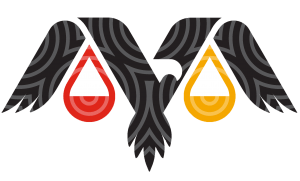Aboriginal Community Justice Reports Project
If you wish to make a referral for an Aboriginal Community Justice Reports Project, please complete the referral form. Please check this website regularly to ensure that you are using the current version of the referral form. Please save the referral form as clientlastname_clientfirstname_ACJR referral and send it to acjrproject@vals.org.au.
If you have further questions, please email ACJR@vals.org.au
Our online launch is a great way to learn about the Project. Read about the launch here, and watch the launch here.
To be considered for an Aboriginal Community Justice Report, the following eligibility criteria must be met:
- The person must be Aboriginal and/or Torres Strait Islander;
- The person must voluntarily consent to participating
- The matter must be listed
– for plea hearing;*
– In the County Koori Court division or in the general list before a Judge who is eligible to sit in the Koori Court division
– at All Vic County Courts* Matters that are listed for sentence appeal will not automatically be excluded from eligibility for the Project, but given the pilot will be producing only 20 reports, suitability for a report for a sentence appeal will be assessed on a case-by-case basis
Suitability is assessed by Aboriginal Community Justice Report staff, situated in VALS’ Community Justice Programs section. To enable assessment of suitability for an Aboriginal Community Justice Report:
- A completed referral form must be sent to VALS’ Community Justice Programs;
- The lawyer must have an initial meeting with Aboriginal Community Justice Report Project staff;
- The person whose matter is before the court must have an initial meeting with Aboriginal Community Justice Report Project staff;
- There must be sufficient notice provided, to enable Aboriginal Community Justice Report Project staff to draft the report (at least 8 weeks). It is recommended that lawyers make a referral at the committal mention stage. Please advise the committing Magistrate in the Magistrate’s Court that you have an interest in participating in the Aboriginal Community Justice Report Project, so that the County Court can in turn be advised.
The person whose matter is before the court should be willing to participate in an interview after sentencing, for the purpose of researching the outcomes of the Report.
Please note that VALS is not charging fees for the production of an Aboriginal Community Justice Report.
The Victorian Aboriginal Legal Service is undertaking this Project, funded with an Australian Research Council grant, in partnership with the Australasian Institute of Judicial Administration, University of Technology Sydney and Griffith University. The project is also being run in Queensland, through Five Bridges Aboriginal and Torres Strait Islander Community Justice Group.
The Reports are modelled on Canada’s Gladue Reports, and adapted for the Victorian context. In Victoria, 20 Aboriginal Community Justice Reports will be produced. A case worker will be made available to each person who participates in order to provide support and care.
You can find more information on the Aboriginal Community Justice Reports Project here.
The Project aims to:
- Reduce the overincarceration of Aboriginal and Torres Strait Islander people;
- Improve sentencing processes and outcomes for Aboriginal and/or Torres Strait Islander defendants.
Information in the Reports will include:
- a more holistic account of individual circumstances, including as they relate to a person’s community, culture and strengths;
- community-based options.
In 2017, VALS released its discussion paper, Aboriginal Community Justice Reports: Addressing Over-Incarceration.
In this paper:
- VALS proposed trialling ‘Aboriginal Community Justice Reports… a pre-sentence, community written report, which aims to gather information about underlying impacts on any Aboriginal offender.’
- ‘The purpose of preparing such reports is to identify possible underlying drivers of the individual’s offending, in particular, those that may relate to the impacts of trauma and colonisation uniquely experienced as an Aboriginal person… [it] also provides a further voice to the offender, their family and community, and thus greater involvement in, and engagement with the justice system.’
- ‘Trial Aboriginal Community Justice Reports modelled on Canada’s Gladue reports to provide information to judicial officers about an Aboriginal person’s life experience and history that impacts their offending; and to identify more
suitable sentencing arrangements to address these underlying factors.’
- ‘Support self-determined initiatives to improve sentencing outcomes for Aboriginal people, including by directing dedicated funding from Burra Lotjpa Dunguludja to the project currently being carried out by VALS and its partners on Aboriginal Community Justice Reports.’
Our Project partners are:


